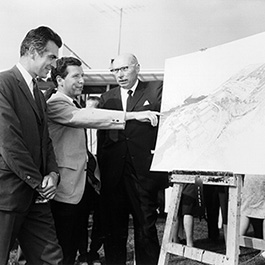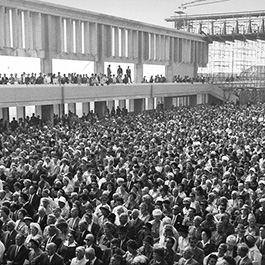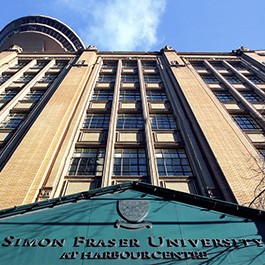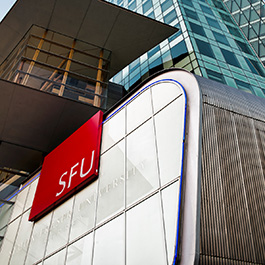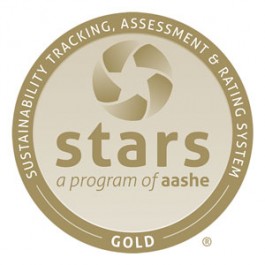
“SFU will pursue ecological, social and economic sustainability through its programs and operations. Through teaching and learning, research and community engagement, SFU will seek and share solutions. In its own operations, it will develop and model best practices, from minimizing its ecological footprint, to maximizing its social, health and economic strength.”
– SFU Strategic Vision
Established fifty years ago, in the 1960s, SFU came about during a time of great change and disruption and quickly became known for its innovative spirit. Fifty years later, the world faces some of its biggest challenges, from climate change and ecosystem deterioration, to the rising gap between the rich and poor. SFU, with its recognized strengths in teaching and research, is at the forefront of the search for solutions.
SFU has clearly committed itself to sustainability, including its adoption of the Sustainability Policy (GP 38), its recognition of sustainability as a guiding principle of the SFU Strategic Vision, and the development and implementation of a Sustainability Strategic Plan.
The SFU Sustainability Reporting Initiative is a pilot project of SFU’s Sustainability Office. It is intended to show us clearly what we have achieved so far and inspire our work going forward. It’s important to celebrate our successes, as well as to identify areas for improvement, so that together we can leverage our strengths in innovation, knowledge mobilization and engagement to build more resilient, equitably prosperous and sustainable communities.
![]()
Energy & Emissions
More Information![]()
Mobility & Travel
More Information![]()
Consumption & Waste
More Information![]()
Learning & Discovery
More Information![]()
Society & Equity
More Information![]()
Risk & Resilience
More InformationWendy Lee
A leader and advocate for sustainability and climate action, Wendy Lee was recognized with the 2015 President’s Award for Leadership in Sustainability in the staff category.
Participate
There are many opportunities for faculty, students, staff and others to contribute to and/or develop sustainability initiatives at SFU. Faculty can integrate sustainability into their research or their courses, students can develop solutions as part of their coursework, staff can apply sustainability principles to their University work and anyone can donate, volunteer or partner to develop new innovative projects and technologies. Learn more at sfu.ca/sustainabilityLet Us Know What You Think
The Sustainability Reporting Initiative is a pilot project with the aim of making current progress data and sustainability leadership stories more accessible and understandable. We strongly encourage you to help us make it a stronger tool to better serve the SFU and external communities. Have feedback? Interested in contributing? Contact us using the form to the right.
Want to keep updated on SFU’s Sustainability Initiative? Sign up for our newsletter

